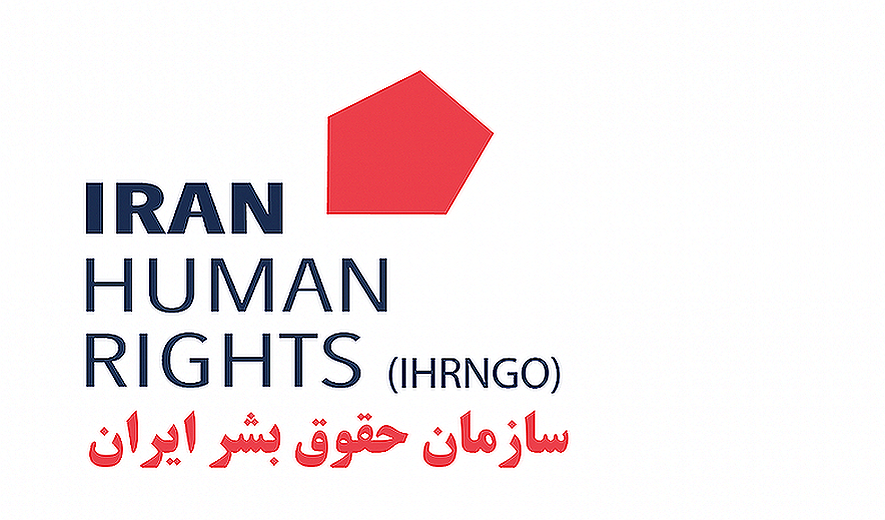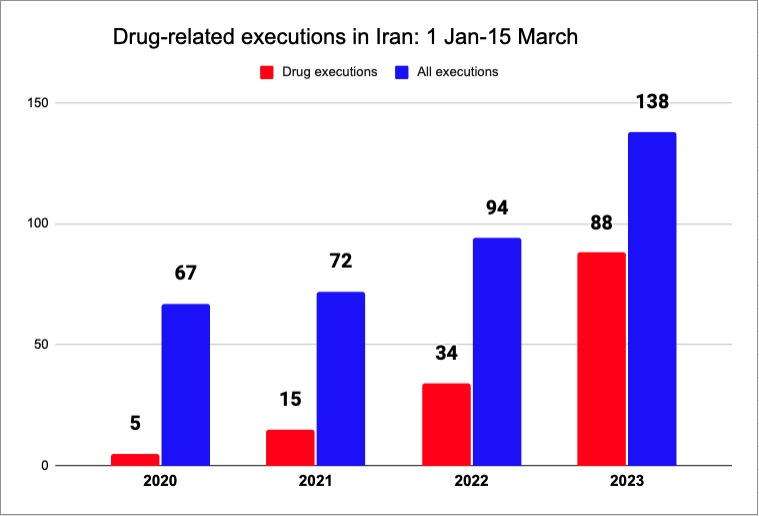138 Executions in 75 Days: Iran Human Rights Warns of Sharp Rise in Drug Executions

Iran Human Rights (IHRNGO); March 16, 2022: At least 138 people have been executed in 2023 (two and a half months) in Iran. 88 of those were executed for drug-related charges.
In the last fortnight alone (1-15 March), at least 29 people (an average of two a day) were executed in Iranian prisons.
Iran Human Rights warns of the high number of executions in Iran, with emphasis on the sharp rise in drug-related executions. Speaking at the Side Event at the UN Commission on Narcotic Drugs (UNODC), Director, Mahmood Amiry-Moghaddam said: “The sharp rise in drug-related executions in the last year shows that the reform to the anti-narcotic laws hasn’t had an enduring impact. It’s not legal amendments alone that bring change in Iran, but international pressure and increasing political cost that can prevent arbitrary executions in the name of drug-related offences. Unfortunately, despite a ten-fold increase in drug executions in the last two years, the UNODC and member states that fund UNODC projects in Iran, have not shown any reaction. This silence is considered a green light by the Islamic Republic to continue the executions. For the first time since the 2017 Amendment to the Anti-Narcotics Laws, more than half of executions in Iran are for drug-related offences.”
For the first time since the implementation of the Amendment to the 2017 Anti-Narcotics Laws, more than half of all executions are for drug-related charges.
At least 138 people have been executed by the Islamic Republic of Iran authorities in 2023.
This is a drastic rise compared to previous years. In the same period of 1 January-15 March, 67 people were executed in 2020, 72 people in 2021 and 94 in 2022. This has risen to 138 in 2023.
Drug-related executions have also increased over the past three years. In the same period of 1 January-15 March, 4 people were executed for drug-related charges in 2020, 15 people in 2021 and 34 in 2022. This has risen to 88 in 2023.

The 2017 Amendment
The 2017 Amendment introduced a mechanism to limit the use of the death penalty and commute the sentences of those on death row to life imprisonment. The Amendment increased the minimum amounts of illegal drugs that would subject convicted producers and distributors to a death sentence, raising the level of synthetic substances, such as heroin, cocaine and amphetamines, from 30 grams to 2 kilograms and that of natural substances, such as opium and cannabis, from 5 kilograms to 50 kilograms (Article 45(d)). The punishment for those already sentenced to death or life imprisonment for drug-related offences would be commuted to a maximum of 30 years imprisonment and a fine. It restricted the death penalty for those convicted of carrying (not only using) weapons, acting as the ringleader, providing financial support, or using minors below the age of 18 or the mentally ill in a drug crime, and to those previously sentenced to death, life imprisonment, or imprisonment for more than 15 years for related crimes.

